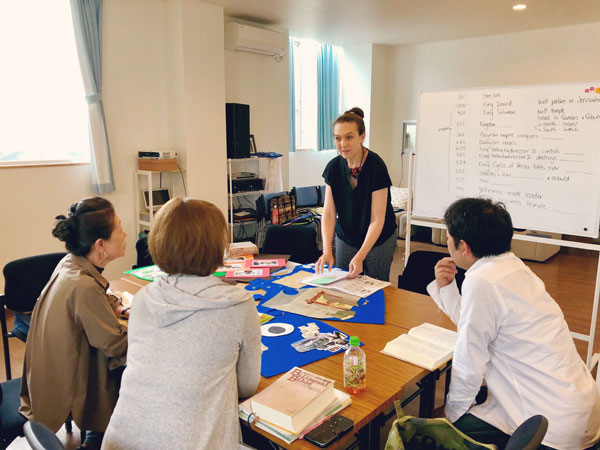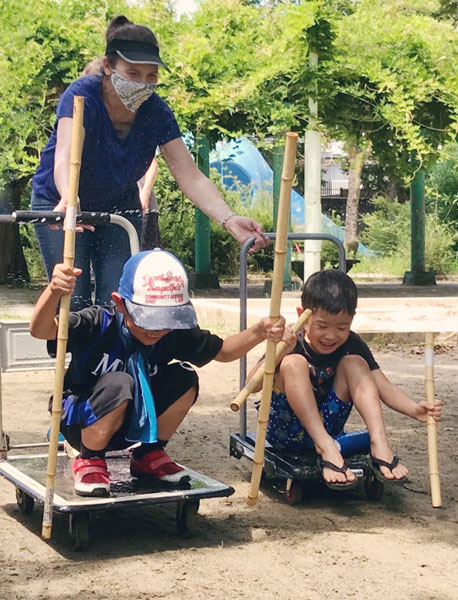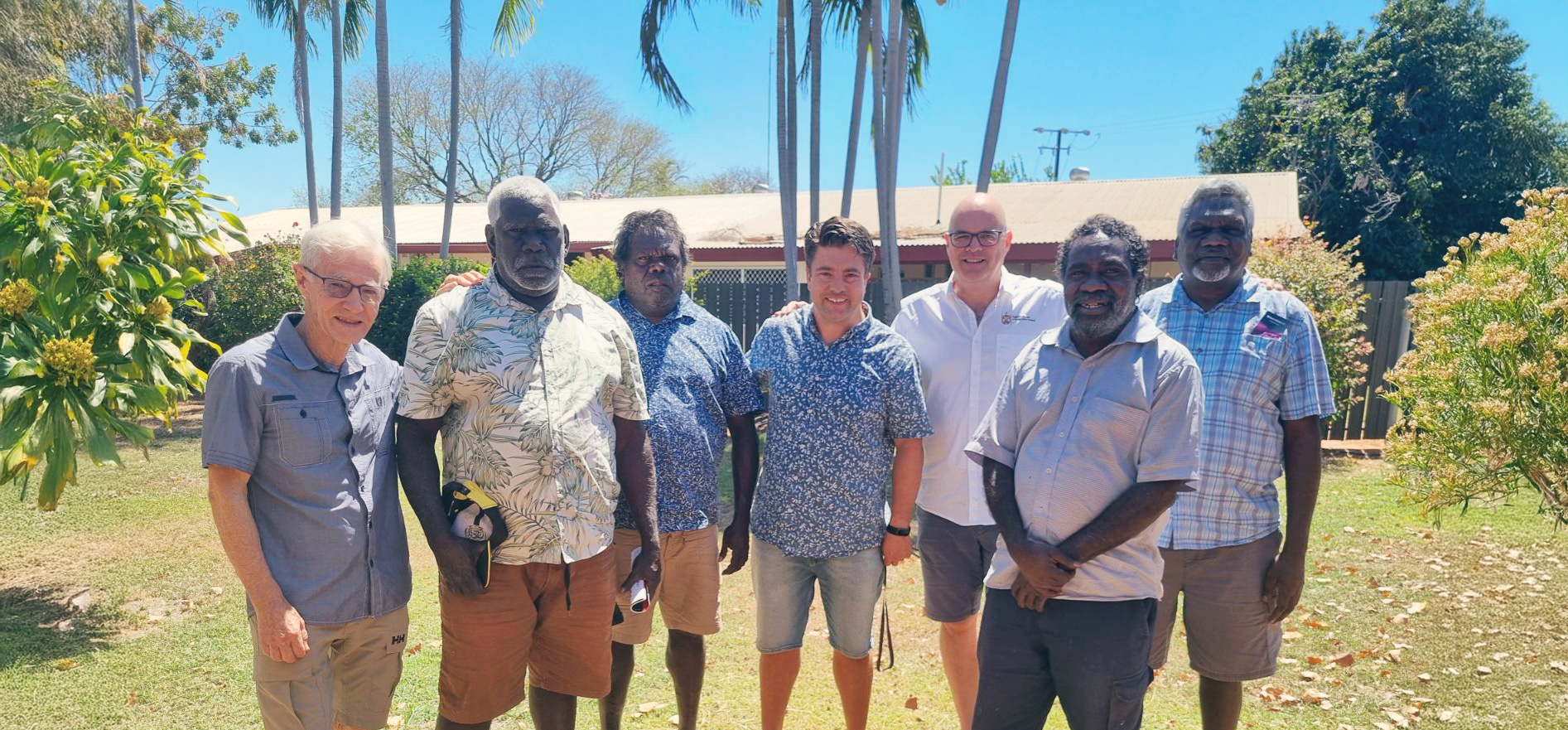Checkpoint Autumn 2022: Spontaneous ministry
CMS missionaries Dene and Rachel Hughes are committed to long-term discipling in the context of their church in Japan. Here they write about what that looks like in practice.
Rachel writes:
I have an increasing appreciation for opportunities to do ‘guerrilla’ ministry. I didn’t value it at first—impromptu, unofficial, seemingly unimportant—but I have come to realise that these chances to do both private and public discipleship, are not necessarily open to others like Dene who have official roles in Japan. Sometimes, to my chagrin, God has opened discipleship opportunities through my lack of official job description and title, my language deficiencies, and my dependency on the Japanese people I work with.
Spontaneous discipling in outreach preparation
Most of the time, Japanese people lean towards highly organised programs with clear expectations of what will happen, closely based on what has happened in the past.
So when there is a formal church ministry, like Sunday school, a youth program or women’s Bible study, there is often a set curriculum and a ‘usual’ way that this program runs, with qualified people in charge. But for various reasons, a friend and I decided to start a new program that has ended up as a monthly outreach event for families. Because it was new, there were no prior expectations to meet, and no expectations of me and what I would do. We were free to shape the purpose, structure, goal, anything! We can do whatever works best to reach the families in our area.
The unexpected benefit of organising this program has been discipling my friend and the others who help us. To prepare for each event, we work through the Bible passage for that month, figuring out what it teaches us about God, ourselves, and how it’s relevant to our lives and the lives of those we will teach. It has brought me great joy to see my friend grow in her love for Jesus, her trust in God’s word and her desire to share that word with others in fun and creative ways.
Spontaneous discipling through language exchange
Another unofficial, though fruitful, ministry I was part of was a language exchange Bible reading club. A friend at church asked me to teach her English, but I suggested a language exchange instead. Another friend overheard the conversation, asked to join, called over a third friend and the group was born! We met for two hours each week to go through a short passage, first in Japanese so I could set a low bar for asking basic questions, and then in English.

Rachel teaching at the language exchange Bible reading club.
The group grew and people started to bring non-Christian neighbours. One of those neighbours started coming to church and eventually, through another Bible study group, she and her husband became Christians. I saw my friends in that group grow in their understanding of the Bible as they struggled to explain the meaning of each verse to me in Japanese that I could understand, and then think through the passage in English.
As I have no official role, I was able to relate as an equal and the group members shared freely.
Since it was not an official program, there were no questions with right or wrong answers to be stated. It gave us all a whole new understanding of the scriptures and naturally led to us considering new ways of applying it to our lives and praying for each other as we did that. We discipled each other in the shared mirth of language struggles!
Other spontaneous programs
Over the years, I’ve had opportunities to teach English to retired women, music to 1-5 year olds and their mums, and get involved in soccer ministry! None of this was what I expected or set out to do. And none of it sounds like discipleship. But in each situation, I depend on the Japanese Christians I’m working with to answer the questions of others, which has in turn grown them in their understanding of scripture. And I’ve been able to point us all to the Bible as our source of wisdom, and salvation in Jesus as our hope.
I’ve found that making and growing disciples doesn’t have to happen through official programs or by having an official role, but can be an outcome of short-lived, unrecognised, ad-hoc ministries that provide shared opportunities to understand God’s word and its relevance to our ordinary daily lives.

Having fun with kids and teaching them about the Bible at the local park.
Dene writes:
Where Rachel is largely free because of her various unofficial roles, my role usually involves wearing the somewhat uncomfortable shoes of the official person. There’s not a little envy as I watch her ‘barefoot running’ this way and that! I have expectations that come from working in a more structured position, and part of that structure is built around the goal of discipling students.
One of the things I observed about the discipleship happening around Rachel’s activity is that people discover their need of, and then a delight for growth in God’s word. One mum who Rachel works with in girls’ youth ministry remarked that ‘growth’ isn’t something she naturally thought applied to her as an adult Christian—“isn’t that referring to kids’ ministry?” And yet we’ve watched her grow, and become more and more intrigued as she studies the Bible, and she’s also become an even more passionate evangelist. At our Christmas celebrations last year, it was incredible to see her confidently play the role of ‘Bethlehem tour guide’ not only because she has a talent for acting, but because the families she was evangelising had come to this strange Christmas event in the park at her invitation.
Structured or spontaneous discipling? The Bible doesn’t set down one ‘correct’ template for “making disciples,” (Matthew 28:19) except to point to the Lord Jesus and speak of his words, work and character.
![]()
GO
Are you open to God leading you into his opportunities to disciple others—whether in spontaneous or structured ministries? God can use any discipling style to bring others to know him, whether in Australia or on location. Talk to your CMS branch about the possibilities.
Read more online
Equipping small group leaders with practical skills is a strategic tool for discipleship. CMS missionary Kellie Nicholas shares here about the online training course she facilitated during lockdown in 2021, for university students in Japan.












































































































